01 - Good Chemistry with Dr. Julie Holland
“The thing about awe and wonder is they’re both exquisitely opened states where you are absolutely in parasympathetic, you may be in flow, but you’re also primed for new information so you’re open to learning. Awe is a really great medicine. ”
What do forests, psychedelics, and breathing through one side of your nose all have in common? They’re good medicine, according to Dr. Julie Holland, for repairing our connection to ourselves, each other and to the wider world around us. Dr. Holland is a psychiatrist and psychopharmacologist who has spent a lot of time understanding what pulls our brains away from a shared reality, and what helps bring them back to reconnect. We talked with Julie in the woods behind her house about her latest book, “Good Chemistry: The Science of Connection from Soul to Psychedelics”, and why things like singing or forest bathing might hold the keys to unlocking the “rest and repair” pathways of our brains.
You may know of Dr. Holland from her books - “Weekends at Bellevue”, about her 9 years on the night shift at the psychiatric emergency ward, or “Moody Bitches - The truth about the drugs you're taking, the sleep you're missing, the sex you're not having and what's really making you crazy”. You can learn more about Dr. Holland and her work here.
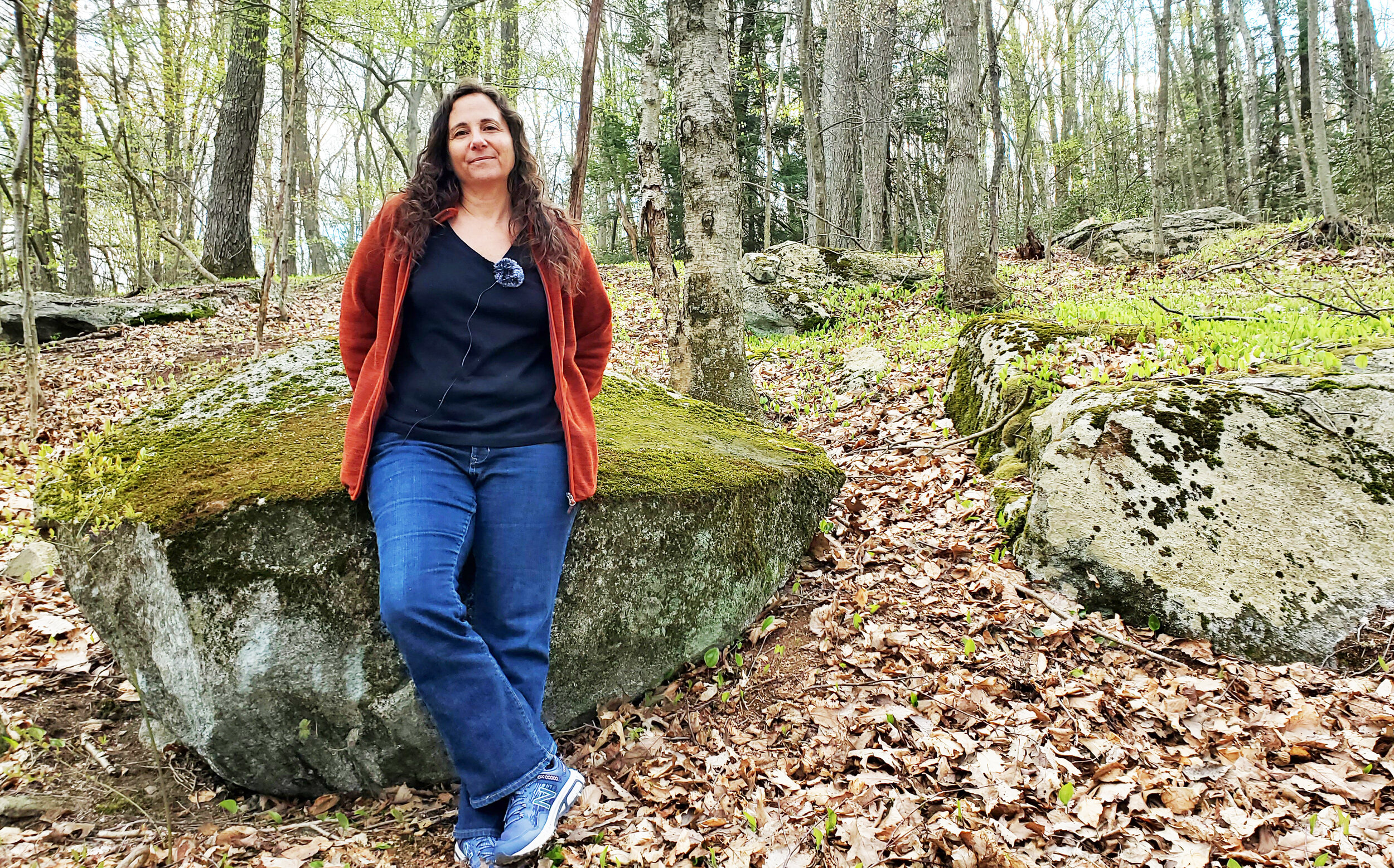
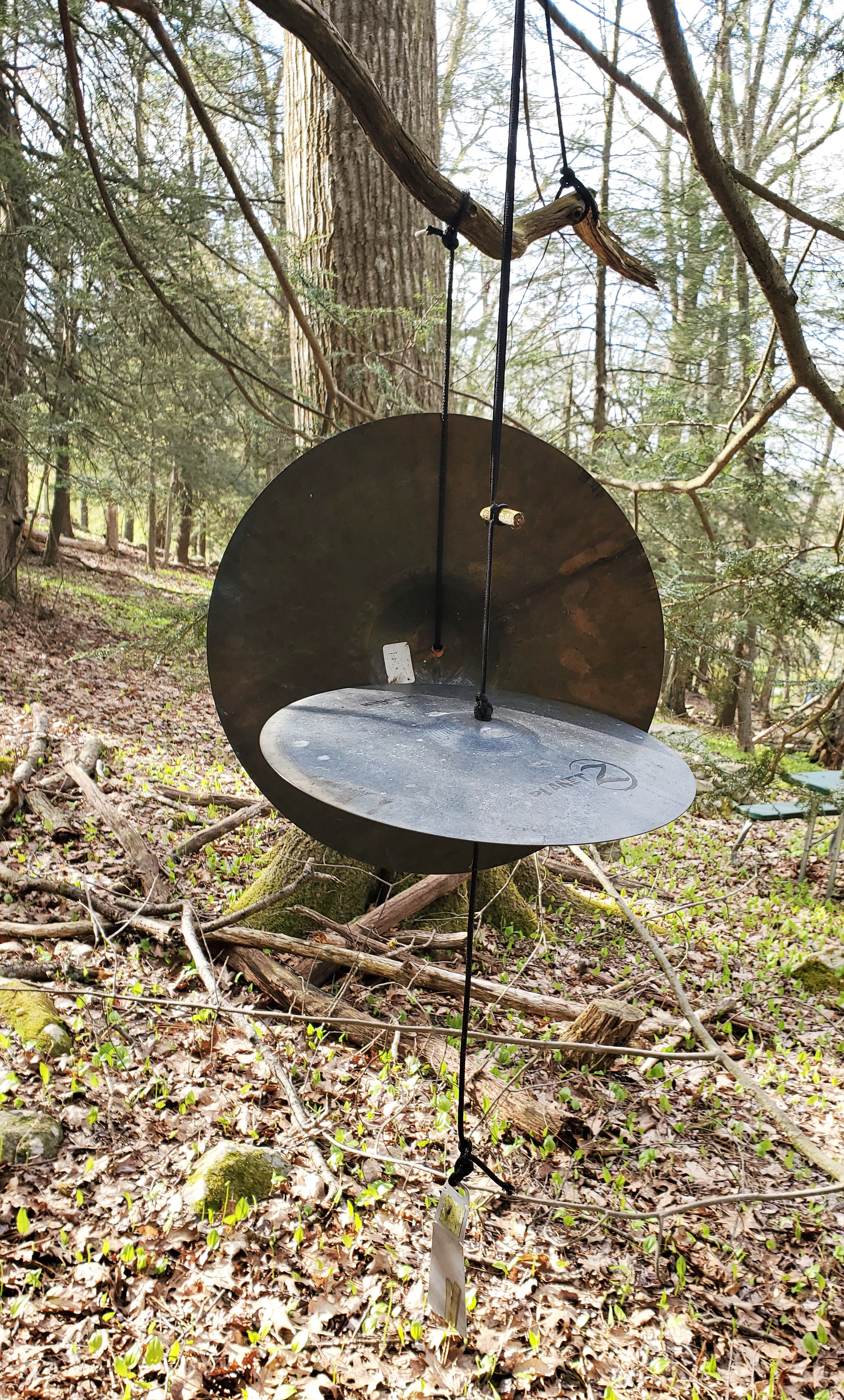
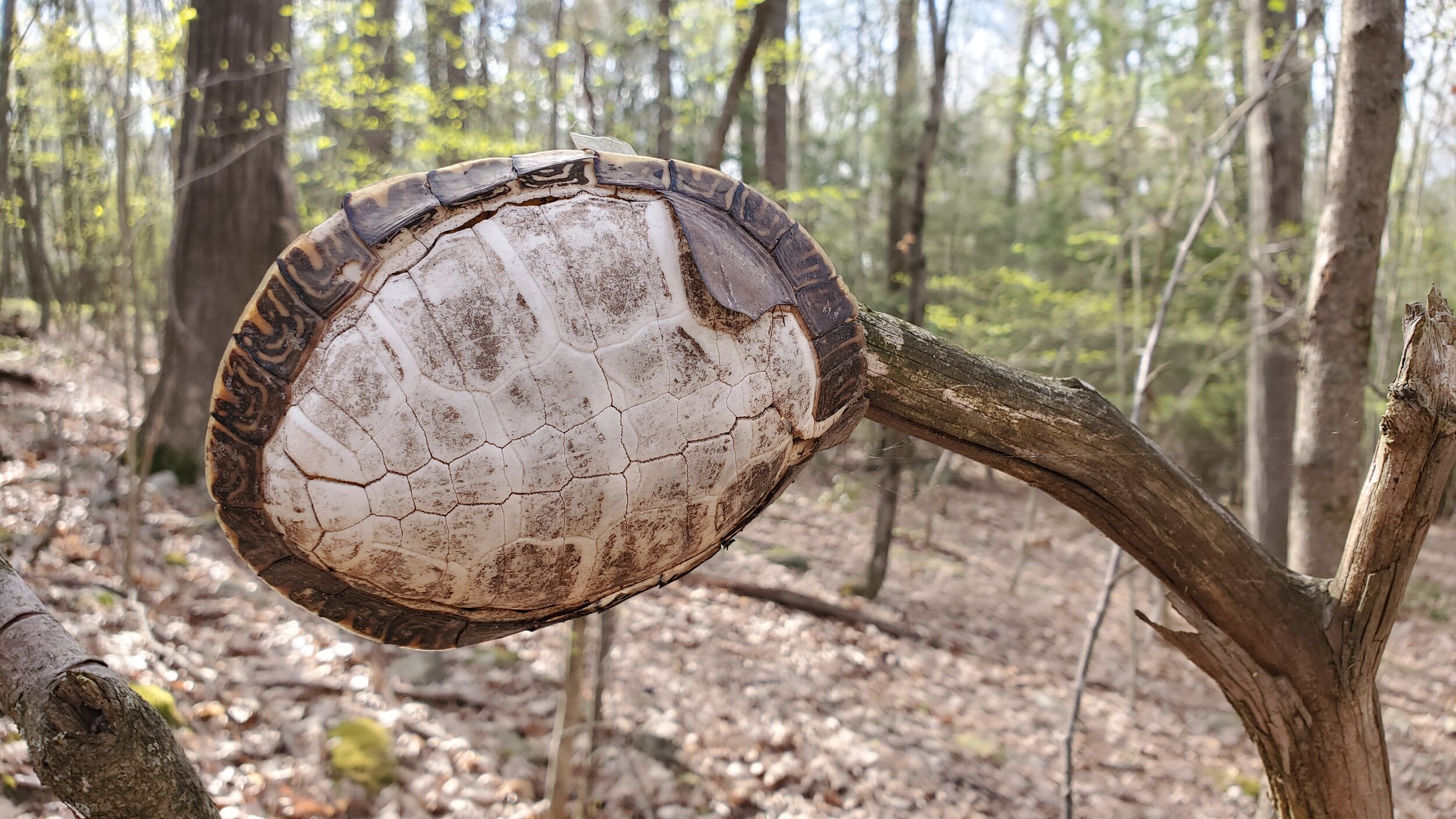
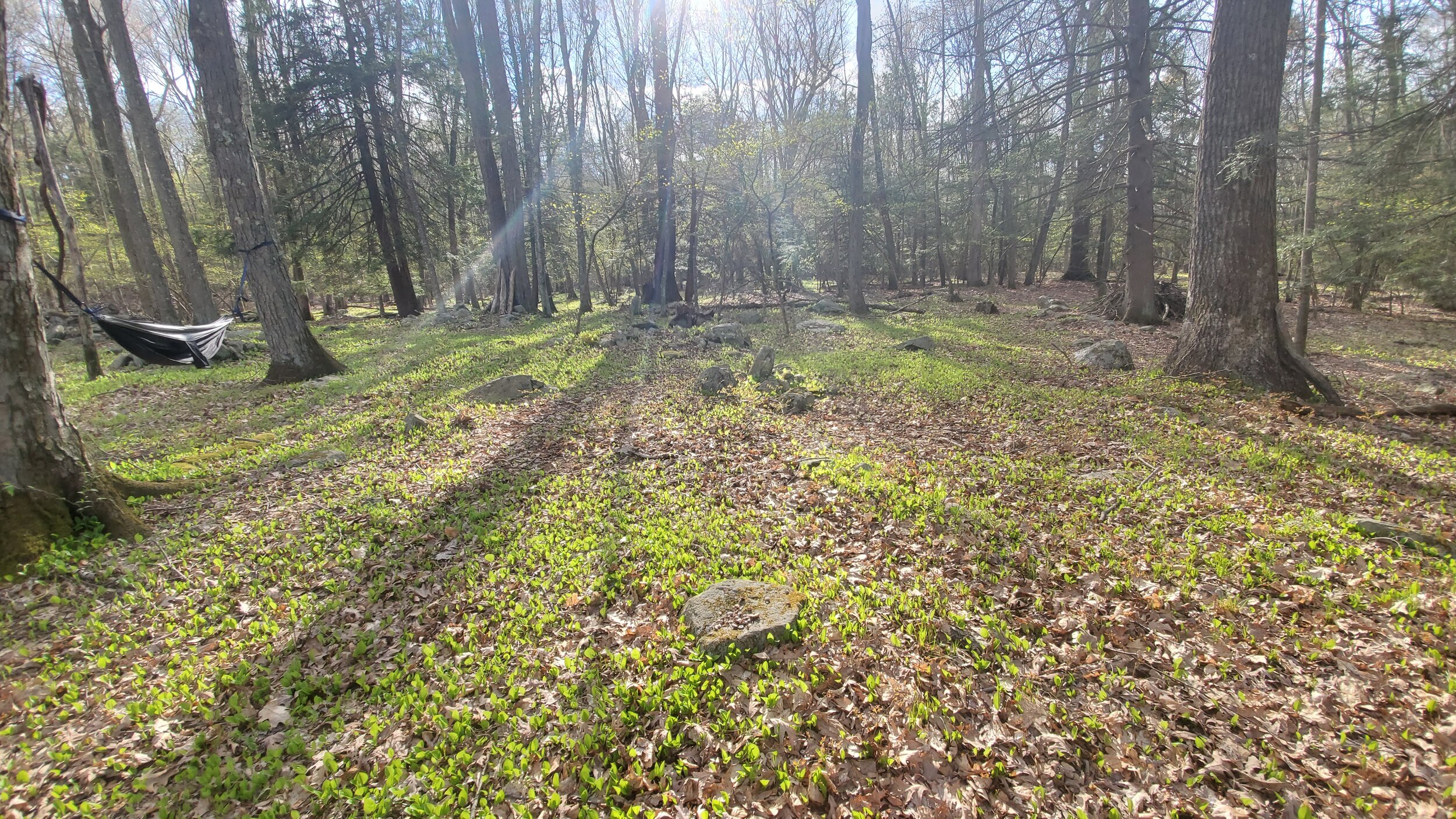
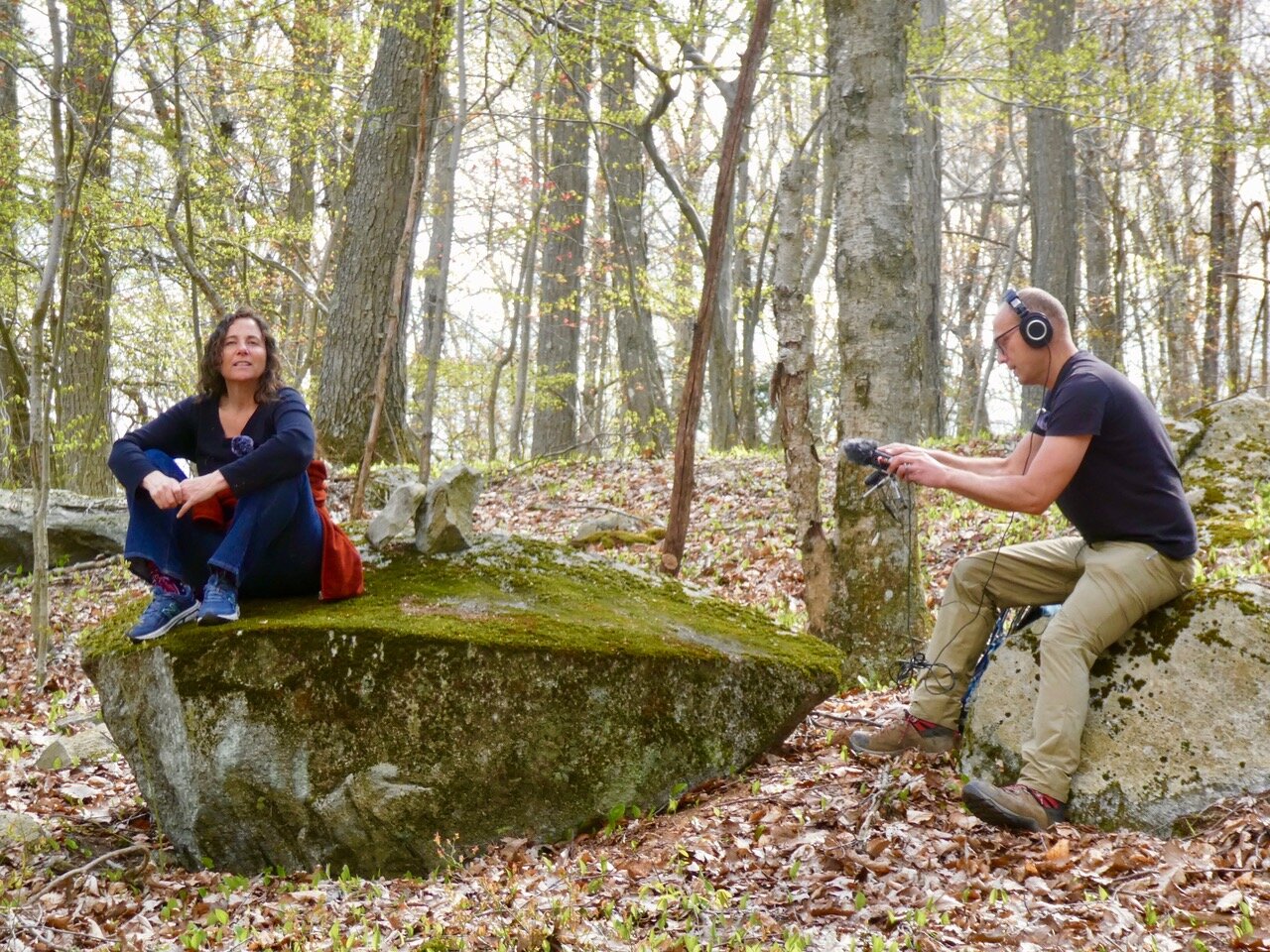
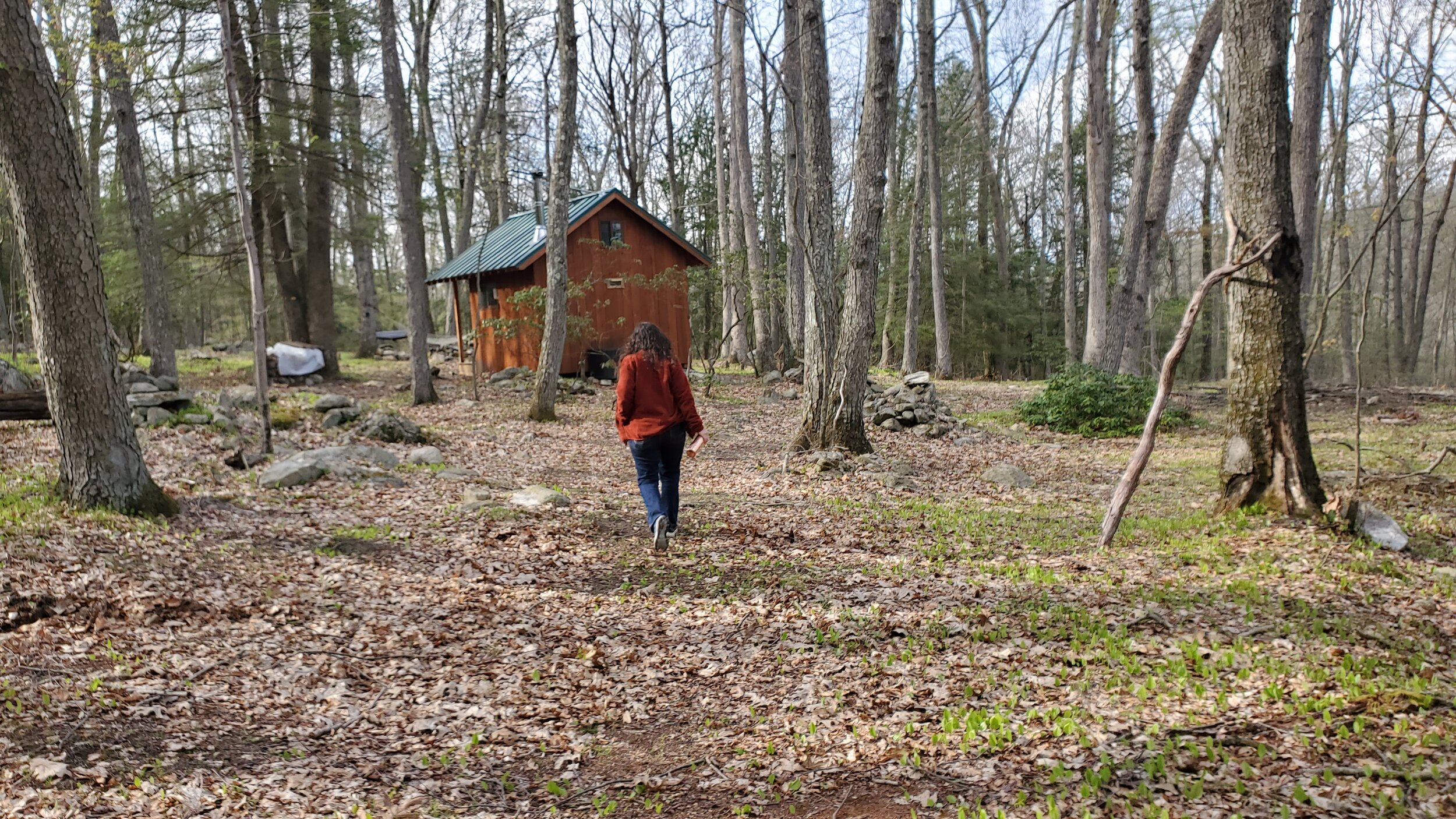
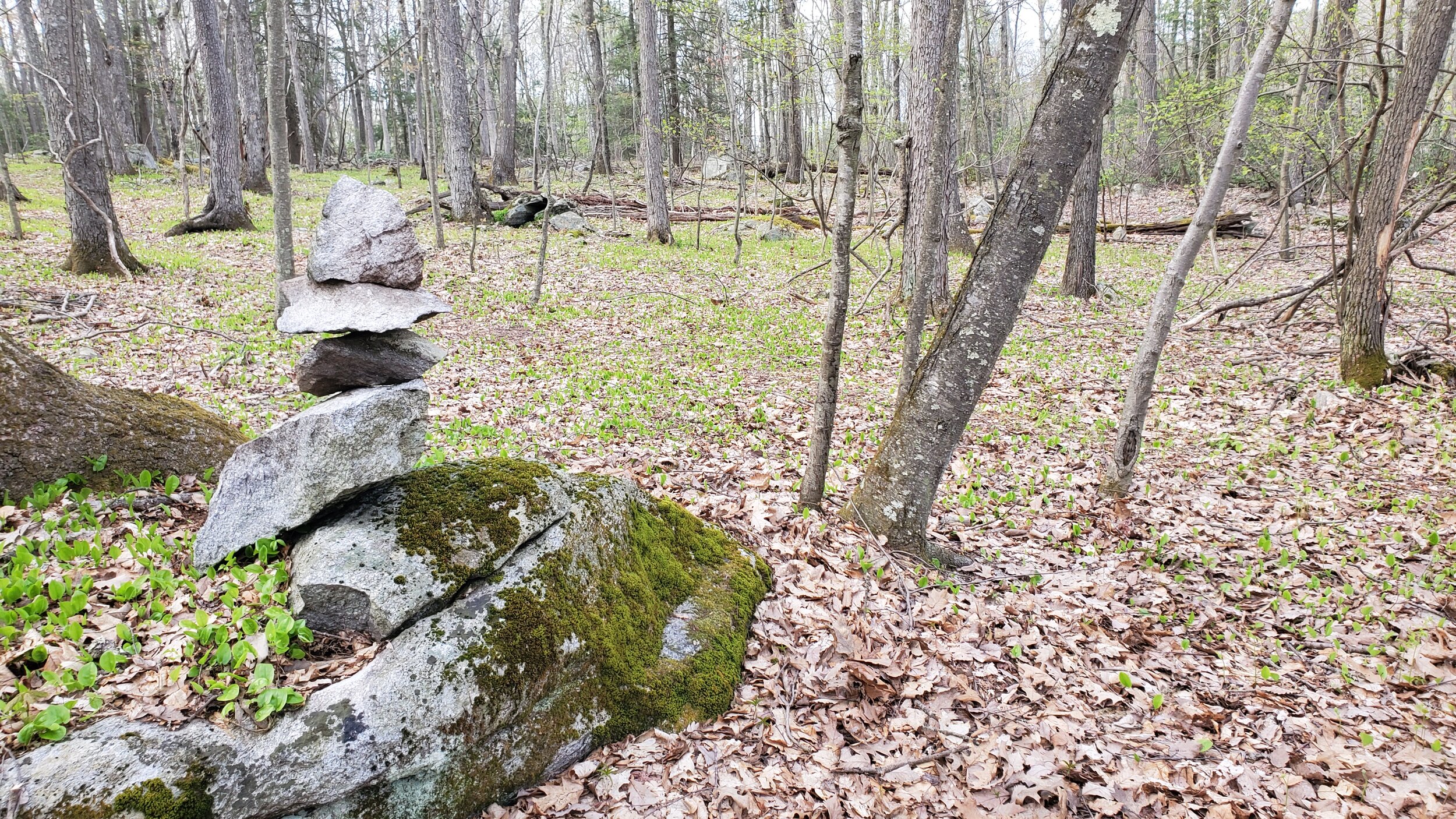
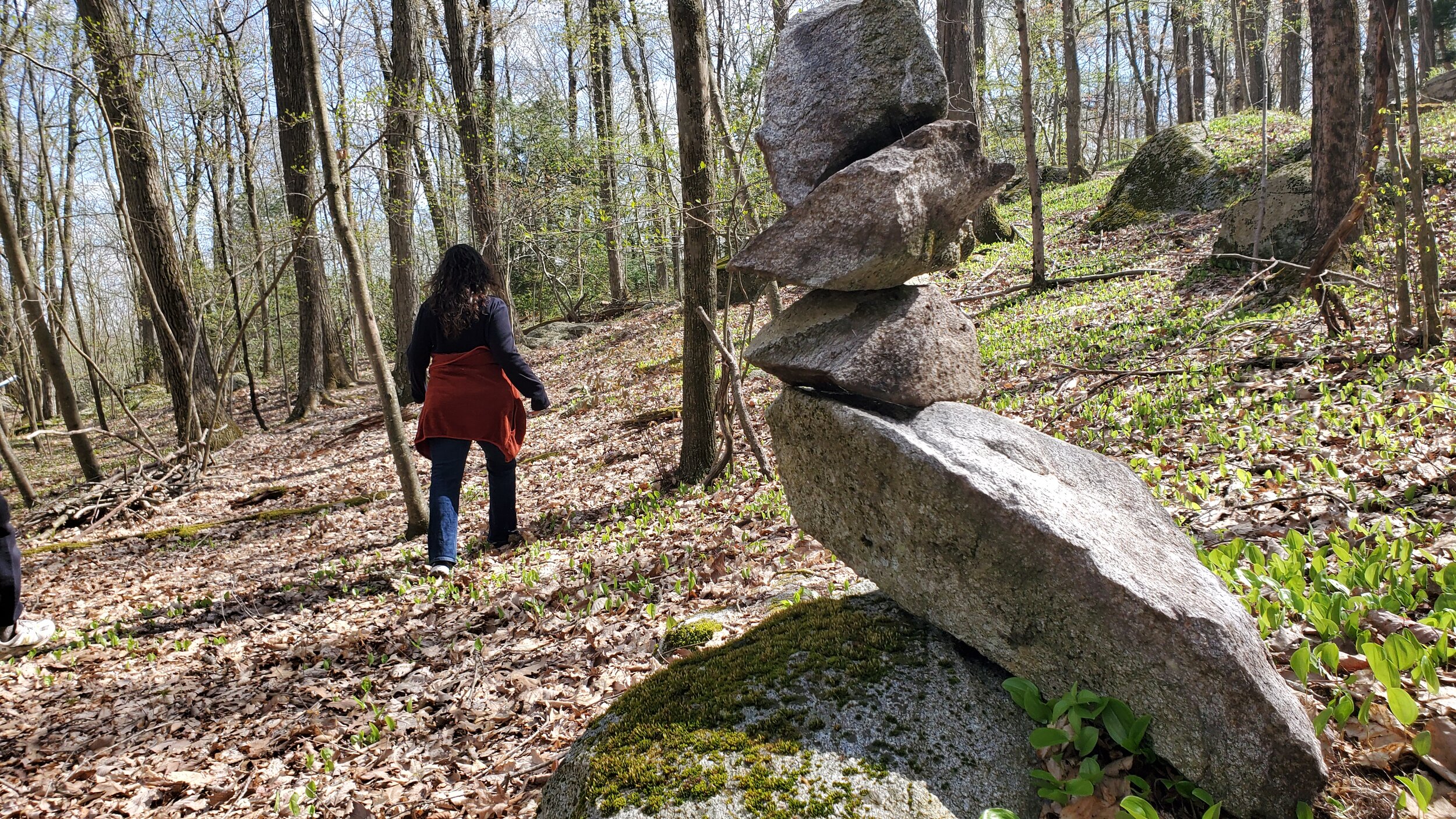
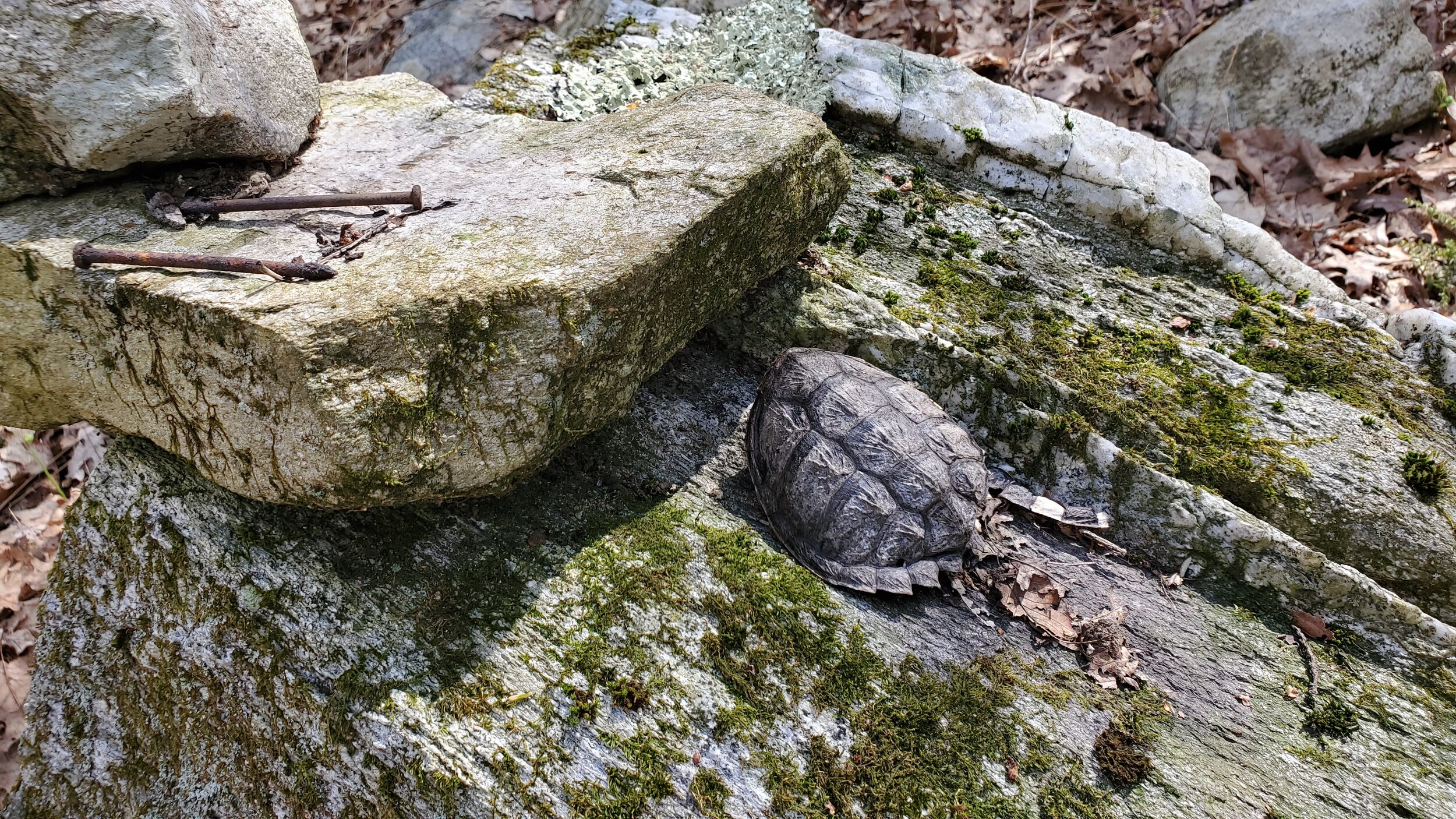
Transcript
Julie:
Here, there's all these trails in the woods and then the swamp is really beautiful in the morning. Still a lot of birds and bird song. That has been one of the things that's sort of been saving my sanity during this time, either being outside or looking outside.
Emily:
Hi, everyone. I'm Emily Kagan-Trenchard.
Jay:
And I'm Jay Erickson. The isolation of the last few months have left a lot of us starving for connection. In a digital world, where I'm more connected than ever, where my inbox is threatening to drown me in messages, why do I feel our threads of attachment are wearing thin?
Emily:
Even before the pandemic, the CDC was warning that a third of adults over 45 feel socially isolated, and that isolation increases the risk of death from things like heart disease and dementia by 50%.
Jay:
We reached out to Dr. Julie Holland, a psychiatrist and psychopharmacologist to talk about her new book, Good Chemistry: The Science of Connection, from Soul to Psychedelics. You may know of Julie from her other books; Weekends at Bellevue, about her nine years on the night shift at the psychiatric emergency ward, or, Moody Bitches: The Truth About the Drugs You're Taking, the Sleep You're Missing, the Sex You're Not Having, and What's Really Making You Crazy. She spent a lot of time understanding what pulls our brains away from a shared reality and what helps bring them back to reconnect.
Emily:
Jay got a chance to hike with Julie up in the woods behind her house earlier this summer while I tagged along remotely from my apartment in Brooklyn.
Jay:
Welcome to Wild Talk, Julie. Thank you for joining us.
Julie:
Well, thank you, Jay and Emily, for inviting me. I'm very happy to be here.
Jay:
First of all, can you kind of just describe where we are and why we're here?
Julie:
So we are in my woods behind our house. My husband, Jeremy, and I, back in '99, we bought a house that had 12 acres behind it and we cleared trails and eventually our friend Richard built us a cabin back here. So Jay and I are physically distancing, we are sitting on two different moss covered rocks. Actually, the rock that I'm sitting on has two rocks on top of it, a big rock and a little rock, and they sort of lean up against each other. It seems like if you took the little rock away, the big rock would be fine, but actually the way they're propped up, they hold each other up, these two rocks, and if you move either one of them, the other one falls. Jeremy and I just had our 21st wedding anniversary and we came out here to play some music and hang out. We ended up having a big argument actually and so now we call this anniversary rock.
Julie:
But that's one of the things that we do, is we have heated discussions and we come to some sort of understanding and agreement and we stay together. And staying is a big theme of this book that I have, that's coming out next month in June, Good Chemistry. And it's this idea that we very easily sort of run away from ourselves and from situations and the hard work is really staying, it's staying present and not flipping on your phone to see what's going on on Twitter and it's also staying in a relationship even when it gets challenging and you see things about yourself or your partner that you don't like.
Emily:
That's great. I love that point about the sort of tension that a partnership requires, right? Whether that's to push against each other, to balance, to ask of more from each other, or to hold each other up. And I think it's really interesting also when you think about that. It's not just staying present with your partner that is asked of us, but so much of your work talks about how your own internal mental chemistry might be making you check out from yourself, let alone from others. So I'm wondering if you could talk a little bit more about that, about the ways we need to sort of think about our own interiority, our own worlds, what that does to open us up to others. And especially in these very strange and socially isolating times, what can that sort of dynamic between our interior worlds and the relationship to the others around us help us to think about as we try and live a little bit more fully in these times?
Julie:
So, one of the ways that this book, Good Chemistry, is designed is that the chapters sort of... each one builds on the other. The first chapter is about making connections with yourself, and the second chapter is about making connections with a partner, and the third is about spreading out to family and then community and then connecting with nature. Then the final chapter is about connecting with the cosmos and with death, just learning to just sort of become pure energy. And each one has its challenges, right? But the first chapter really is about connecting with the self. And the first step in sort of staying and staying present is really to stay in our bodies and to become embodied. When we're on our phones or our laptops or whatever, watching something, or just... it's easy to leave, to become disembodied.
Julie:
If nothing else, your posture sort of suffers from this kind of thing where you become less aware of where you physically are. So in Good Chemistry, I talk a lot about how to get back in your body and how to get back in the present moment and how important that is. We talk a lot in medicine or in psychiatry, we'll sort of say things like yoga and meditation, and it's almost like this throwaway thing, like, "Yeah, you'll do yoga meditation and you'll also take these medicines and you'll have psychotherapy." But it's not a throwaway. It's the most basic sort of building blocks to being centered and embodied, is that you are mindful and you do try to practice meditation and you try to practice yoga so that you can just get more comfortable and have it in your own body. Until you are really present and whole and connected to yourself, you're not going to be much good in a relationship.
Julie:
This book was written before the pandemic and one of the things that I talk about throughout the book is that getting your connections through your phone and through your laptop, it's not real, it's artificial, it's synthetic, it's not what your body needs. And yet now, it is how we are getting a lot of our sustenance and how we are getting our connections and we have to sort of settle for this synthetic artificial connection. And it can feel pretty real, but it's... obviously pales in comparison to skin-to-skin contact and eye contact and holding hands and hugging and cuddling. And so a lot of the things I recommend in Good Chemistry, now I feel like there has to be a little caveat, like if it is physically safe for you to do these things, please do.
Julie:
But we are all now relying more on our devices to stay connected than ever before. So it's kind of funny to come out with a book which is all about, "Put down your devices, they won't nourish you."
Emily:
It's almost sort of like this natural experiment to say, "Okay, well, how much of a relationship actually does come through through technology because it's all we've got these days, right?
Julie:
I was talking to a patient yesterday. I did a bunch of phone sessions with my patients yesterday and I was talking to one woman and she told me that it had been eight weeks since she had had no physical touch, no human touch for eight weeks. And I was thinking, you mentioned like sort of experiment, and you can't help but sort of think about the old experiments with Harlow where he made these mother monkeys that were just made out of wire and then other ones that were made out of cloth. But wire ones had the food and the baby monkeys would go to the wire ones for the nourishment, but as soon as the bottle was empty, they would go to the cloth ones just for touch and for comfort. We are really built for touch and for being arm in arm and hand in hand and smelling each other.
Julie:
It saddens me to think about how many people aren't getting what they need. I mean, it's sort of obvious that the first responders and the people on the front lines in medicine, yes, they're going to be traumatized, there certainly are going to have PTSD, and they're going through a trauma. Even as we're sitting here in the woods and it's quiet, there are people who are being acutely traumatized. But all of us who are physically distancing are sort of being a sub-acutely or chronically traumatized by not availing ourselves of sort of the healing power of touch and it's definitely going to take its toll.
Jay:
So, I love this widening aperture that your book has, that structure. It's starting with the self and kind of zooming all the way out to the cosmos. And my own experience of the last couple of months, I've sort of found in the absence of human community, beyond my family or maybe some anemic Zoom connection, but in the absence of that, I found I'm much more plugged into the non-human community. Is that enough? Can that be a substitute?
Julie:
I was talking to this patient because she's quarantining alone, and she has a dog, which I think is one of the things that is really saving her, and I was encouraging her to go ahead and have extended moments of eye contact with the dog, and the dog is nature. For years and years, I've been encouraging my patients to go outside and find grass and trees and chirping birds and butterflies because it will make them feel better and it will improve their mood and it will quell their anxiety. So I'm always kind of bugging my patients that nature is therapy. Definitely now more than ever, there are people who they know that they can't be with a bunch of their friends but that they could go for a hike. But the problem is, there's so many people going to these small trails that it's really impossible to physically distance appropriately.
Julie:
But yes, nature can feed you and soothe you and help you to feel connected. Full disclosure, Good Chemistry talks quite a bit about certain mind-altering plant medicines that can help you to feel very connected with nature. So I talk about cannabis and I talk about ayahuasca, psilocybin, there's all sorts of classical psychedelics that can help you feel sort of more connected with the cosmos or more connected with nature. But it is therapeutic, this forest bathing, which is what the Japanese call it. There really is data to show that being in nature or forest bathing does help anxiety, does help depression, can work nearly as well as antidepressants in patient populations that are mildly to moderately depressed.
Julie:
We get out in the woods as much as we can and I really I would like to take this moment to acknowledge my privilege. I understand that a lot of people can't get out into the woods and into nature. We're really fortunate to live not only near woods, but near this beautiful swamp and a lake. I find water incredibly soothing and therapeutic.
Jay:
At what point does that become part of standard clinical care? I mean, it's not a drug, nobody can make money off of it. Is it prescribed one forest bathing per day-
Julie:
Totally.
Jay:
... and they check up on their adherence? I mean, if it's that efficacious, why wouldn't you?
Julie:
Absolutely. In Moody Bitches, I wrote quite a bit about this. There were some studies and there was something done in... I feel like it was around Austin, Texas, where they had doctors actually prescribe walking down by the waterfront. And you're going to walk three days a week for 30 minutes at a time and showed that people got better. I also saw a really interesting study recently about singing, singing for 10 minutes a day, every day. And after several weeks of singing 10 minutes a day, every day, the people's anxiety and depression was significantly less than the group that didn't do this. One of the things about singing is that it puts you in the parasympathetic mode. I want to talk a little bit about parasympathetic because I think a lot of people don't really know what it is.
Julie:
But Good Chemistry explains this redundantly, I would say, because it's so important. Everybody has heard of fight or flight. I think from middle school to medical school, I probably was taught fight or flight, sympathetic nervous system, like a dozen times. But what they don't teach you, what they don't talk about, is the flip side of the sympathetic nervous system, which is called the parasympathetic nervous system. So, sympathetic is fight or flight, and parasympathetic... In medical school, they call it rest and digest or rest, digest, and repair. It's actually the only time that your body runs any sort of self-repairing protocol. I mean, it makes sense, right? If you're you're being chased by a tiger, it's not the time that your cells are going to repair themselves.
Julie:
It's only when you're resting, where you can sleep and digest, and where your immune system works properly and that's where your body can repair itself. So in this state, which is the parasympathetic state, that's also the only time that you're open to creating connections, trusting, bonding with people, right? If you're in fight or flight, you're very suspicious, you're not there to make friends. You're either going to attack somebody or run away from them. So the parasympathetic is when you have tend and befriend, or what I call connect and protect, where you're creating connections and you're sort of protecting the people that you consider to be in your tribe. So Good Chemistry talks a lot about how to get into the parasympathetic mode because that's what's healthiest.
Julie:
Mindfulness, meditation, yoga, they all get you in parasympathetic, and so does walking in the woods. And so the singing, anytime you're exhaling longer than you're inhaling, you're putting yourself in parasympathetic.
Emily:
It's fascinating, because I was actually curious, what is that connection between the woods and singing? I think of singing as being physiological, but I'm standing in the woods, is it any woods? Is it just those trees? So that's interesting. So is it the calming sensibility? Do you think it's more connected to the sort of humbling effect that nature can have on us?
Julie:
Yes.
Emily:
Yeah, talk about that.
Julie:
Let's talk about humbling. And this actually brings psychedelics into the talk a little bit, and also meditation. So, one of the things that keeps people anxious or depressed is that they start to ruminate and rethink, and think and think and rethink and reassess; am I safe? What's going to happen tomorrow? Will I be safe tomorrow? What happened yesterday? Did I make myself unsafe by what I did yesterday? And it's just this constant sort of self-absorbed inventory. And the neural circuitry that underlies this kind of ruminative thinking is called the default mode network. There's all sorts of things that can quiet the default mode network, that can... as I like to say, get your head out of your ass. They can get you to be less self absorbed and more feeling like you're part of something bigger than just you, right?
Julie:
There's more things to worry about than just you and how you're looking to your friends. So, when you're out in the woods and you are among the trees and the grass and the sky and you start to sort of remember, like, "I am an animal in the woods and there's other animals in the woods and there's other woods around the planet and there are other planets in the solar system and there's others solar systems in the universe," you can start to get a sense of awe that there are things bigger than you and that you're part of something bigger than you. And when you're in that place of awe, your default mode network is quieted. So the other thing that quiets the default mode network is meditation and psychedelics, or also being in a state of flow, right?
Julie:
Let's say you just get really absorbed in a project, or you're making art, or you're riding a bicycle, or anything, but you forget yourself, you become so immersed in what you're doing that your sense of self falls away, that is also a time when you're quieting the default mode network. So, awe, flow, meditation, psychedelics, there's all sorts of things that just sort of get your mind off yourself basically.
Emily:
What is it about that space, the parasympathetic space, that not only allows healing but allows growth, that allows you to learn?
Julie:
Well, oxytocin enables neuroplasticity is the short answer, right? If you're in fight or flight, the main hormones are cortisol and adrenaline. So, cortisol, it's a steroid, so it basically suppresses the immune system and suppresses the immune response, and then adrenaline, it speeds up your breathing and shunts blood away from your stomach where digestion might've happened and out into your muscles. So there are a lot of things that happen physiologically when you are in this sort of anxious fight or flight state. And the main hormone in the parasympathetic rest and digest and repair is oxytocin, and oxytocin is what allows you to create partnerships, to tend and befriend, to trust, and to bond. And then, oxytocin feels really good, it's very pleasurable.
Julie:
And one of the ways that it works, one of the ways that oxytocin makes social behavior so pleasurable is actually through the endocannabinoid system, so it's through the body's own internal cannabis-like molecules. Even if you've never smoked pot in your life, you have cannabis-like molecules coursing through your body, head to toe. There's one drug I didn't mention that I feel obligated to. I'm the medical monitor for research looking at whether MDMA-assisted psychotherapy can help to treat post-traumatic stress disorder. For those of you listening who don't know what MDMA is, it's better known as the drug Ecstasy or some people call it Molly. It's methylenedioxymethamphetamine and it's been around for decades and it's been used as an adjunct during psychotherapy to make therapy sort of quicker, more efficient, more effective. It's a catalyst basically.
Julie:
So I'm involved in those studies. At this point, they're multicenter trials because we're in phase three trials now. The FDA has fast-tracked MDMA as a potential breakthrough therapy for post-traumatic stress disorder. So I talk about MDMA therapy and about the effects of MDMA in Good Chemistry. And one of the reasons that I'm interested in MDMA, although there are many, it was... Of the first book that I ever edited was a book called Ecstasy: The Complete Guide. But one of the things about MDMA that's unique is that it is a huge releaser of oxytocin. The oxytocin levels go up tremendously when you take MDMA. So one of the effects that some people notice when they take Ecstasy is that they can feel very trusting and bonded and open and connected to somebody. And oxytocin quiets the amygdala, which is the brain's fear center.
Julie:
So one of the things that happens in MDMA-assisted psychotherapy is that people can... they're much less fearful about talking about trauma, they're less sort of defended basically. It's easier to get to the stuff that you really need to get to and talk about it and sort of dissect it. There was just a suicide recently of a New York City emergency room physician. People forget that post-traumatic stress disorder is potentially a lethal illness or a life-threatening illness because there is a high rate of suicide among people who've got PTSD. And I think the other thing we're going to be seeing from first responders and the medical frontline is increased substance use and alcoholism and things of that nature. When people are in psychic pain, they will sometimes anesthetize themselves as best they can and continue to expose themselves to the trauma.
Emily:
I'd like to pick on that a little bit more because I work in healthcare and one of the statistics that's always terrified me is that physicians already have some of the highest suicide rates of any profession, and that's before this crisis.
Julie:
Well, I wanted to talk a little bit about the psyche of a doctor, being one. I was trying to explain this to somebody recently, which is like, we're not usually wrong. My whole life, I got hundreds on tests or 104, 105, because it wasn't enough to get everything right, I also wanted extra credit. And got into the schools I wanted to and got good grades. People who end up being doctors, we were told that we're right a lot, and we are right a lot, and we don't fail, we don't lose. And so to be surrounded by this new virus when you don't really understand it completely and patients show up with all this different presentations and you don't realize it's the same thing, or it acts different ways in different people and also it kills people. And so you go from hardly ever having people dying on you to people dying all around you.
Julie:
The sense of failure and the sense of impotence is really going to be crippling for people who honestly just aren't used to it; they're not used to their patients dying, they're not used to being on the losing end.
Emily:
And it seems like that there's a corollary with that to the degrees to which people are self-medicating with some of the exact substances you've talked about.
Julie:
Exactly.
Jay:
I'd love to just dig in a little on that. You mentioned climate change and what's going on there and you have an entire chapter in the new book on connecting to the earth. There were a couple of terms in there that really struck me, one being ecocide, for what we're doing to the planet, and the other being biophilia, our innate draw towards nature. There's two polar, seemingly oppositional instincts, how do we reconcile those and how can they relate to these other modes of connection that you get into?
Julie:
Yeah. It is hard to reconcile, why are we killing the planet if we love nature so much? Why are we biting the hand that feeds? Right? And it's hard for us to hold those two things and so it's easier for us to sort of separate out and be like, "Look, I am an eco-activist and I am somebody who loves the earth and I'm not committing ecocide. It's other people who are doing that." We do this all the time. We create these others and we divide the world into us and them. So, one of the things that psychedelics can help with is allowing you to hold two diametrically opposing ideas in one space, or to just sort of accept that nothing is really either/or, that everything is both and more, that any real duality is probably sort of false and there's something bigger that is holding both of those things.
Julie:
One of the things I write about with talking about psychedelics is that they can help us feel more responsible for the planet. Not only feel more connected, but feel like we have to do something. And they're really interesting studies showing that people who've taken psilocybin mushrooms, which are magic mushrooms, that they score higher on these traits of eco-consciousness and environmental activism.
Jay:
As a psychologist and someone who's specializing in psychopharmacology, the brain is sometimes called the last frontier and we have medications at work but we also have some that don't seem to work and we don't always know why. What's your relationship to the unknown and what helps guide you through uncharted territory? What sort of practices or systems or images do you work with to confront the unknown?
Julie:
I prioritize sleep, I get a ton of sleep. I drink a lot of water. I try to be in nature. I feel like music really, really soothes me, and if I can play guitar for 10 minutes or sing for 10 minutes, I can feel it sort of physically changing my body. I also like to avail myself of babies and little children when I can. I can physically feel like some sort of oxytocin rush if I hold a baby or am sort of watching a toddler or something like that. So, yeah.
Jay:
So it sounds like really just groundedness and turning on that parasympathetic system and that helps you confront the unknown?
Julie:
Yeah. The easiest way to get into parasympathetic is really just breathe through your nose. If you are freaking out, if you block your right nostril and you breathe in and out through your left nostril, it can calm you down and soothe you even more acutely than just breathing in and out through your nose.
Jay:
I'm just realizing, when people are struck or shocked by something, they cover their mouths, do you think that's subconsciously, "Okay, breathe through the nose now."
Julie:
That's okay, like, "You should breathe through the nose now." Yeah, that's actually good idea. Well, when people get anxious and upset, one of the first things they do is they stop breathing, or they'll breathe very shallowly. And when the brain senses that your bloodstream has got a lower oxygen level, the first thing it does is panic. So you end up sort of creating the circle where if you're a shallow breather, you're more likely to panic, and if you panic, you're more likely to breathe through your mouth. And so, you have to stop that cycle. So breathing through your nose is just the easiest way to sort of stop the cycle and get over into parasympathetic.
Emily:
I think there's a lot of folks who had types of experiences where they've had a psychedelic experience, they made some connection, found some creative pursuit that then energized them for a very long time after the experience ended years even. And I think your work you even mentioned the word awe earlier. Those moments when you do find that sense of awe and wonder, they stick with you, right? They've got this sort of lasting power of connection. I know I had heard a talk by the folks who put on Cirque du Soleil. They worked with a neuroscientist to study some of this and found that even seeing a remarkable performance that inspires awe and wonder can have some of these same neurological effects.
Emily:
So I'm wondering if you could talk a little bit about, if we can't go to Vegas and see awe and then go take some Molly upstairs in the hotel room... As much as I would love for us all to be able to go do that, what are some of the other ways that we can start to think about getting those moments of awe and wonder in our lives?
Julie:
So, the thing about awe and wonder is they're both exquisitely opened states where you are absolutely in parasympathetic, you may be in flow, but you're also primed for new information, so you're open to learning. And they're also exquisite states of neuroplasticity, so you can actually rewire the brain in these states. So awe is a really great medicine and you can get it from nature certainly. I mean, it doesn't have to be the Grand Canyon, you can look up close in a macro lens at anything and be in awe of the intricacies of the natural world. But I also think that you can be in awe at how two bunnies can play together or a child can learn how to roll over on their blanket. I mean, I have a pretty loose interpretation, I think, for what puts you in that place. It's just it's a state of openness, you're open to learning, and there's something that's not you, that's bigger than you, that that puts you in a state of wonder.
Jay:
So, death.
Julie:
Yes, death.
Jay:
So, death. Brain is sort of a final frontier and clearly at least for this physical plane of this particular manifestation, walking around in this particular flash bag, death is the final frontier.
Julie:
For sure. Yeah.
Jay:
In your book, you touch on work that Katherine MacLean, our mutual friend, Kate Mac, is doing. How can psychedelics change our relationship individually or culturally to death?
Julie:
Yeah. So they absolutely can. I wanted to give Katherine MacLean sort of the last word in the book because she is the one who sort of for the longest time has been talking about using psychedelics as what she calls death practice, that because they quiet the default mode network and because you can get the sense that you're not important or you're insignificant or maybe even you don't exist anymore, right? In a really intense psychedelic experience, you will lose your sense of self, you will have what's called ego disintegration, and that is like the ultimate quieting of the default mode network where you sort of cease to exist and you become one with the cosmos, right? It's not just that everything is connected but that you're part of that everything and you lose your small sort of sense of self and you connect to something much bigger than you.
Julie:
Psychedelics can engender this sense of awe and they can engender this ego disintegration, which is in some ways like death practice. If you take enough LSD or psilocybin or ayahuasca, it's very possible that you will have a sense of no longer existing and sometimes that's terrifying and other times it is accompanied by a tremendous sense of bliss. So the classic, mystical experience is that you actually have both, that you go through the void and into the light, so that you have this sense of nothingness, but then on the other side of the void, there is this light and it is sort of the opposite of a sense of nothingness, it is a sense of everythingness. So there are clinical studies that are using research subjects who are very physically sick, who have got cancer, who've got end stage cancer where they are going to die, where they know that it's inevitable and they're giving these patients, these terminal patients, very kind of high dose psilocybin, mystical experiences.
Julie:
Then they're measuring afterwards to see how their anxiety is, how their pain is, how their quality of life is. And what they showed was that people who had very intense, mystical experiences would take fewer pain medicines, had less depression, less anxiety, they felt sort of more accepting of what their ultimate fate would be, which is what all of our ultimate fates are. I think we do a lot of denial of death in our culture and denial of aging is sort of its step-sibling. In the United States and our culture, we don't talk very much about death and we don't really... If we go to a funeral, the body has been embalmed with makeup and hair and they look better than they've ever looked before. We don't really see what death looks like up-close and we have a lot of denial and distancing in our culture around death.
Julie:
In other cultures, they don't. In other cultures, it's more sort of integrated that you see people die, it doesn't get sort of sterilized.
Jay:
Yeah. I mean, we've totally forgotten how to die well and that idea. And I feel like there's a resurgence of remembering how to be born. There's more old practices-
Julie:
For sure.
Jay:
... coming back with midwives and doulas.
Julie:
Definitely.
Jay:
And now it's just beginning this idea of a death doula-
Julie:
Right. There needs to be a death doula.
Jay:
... and rebuilding mature cultures around death.
Julie:
Absolutely. I hope that I wrote about this in Moody Bitches because I certainly meant to. It was this idea that the practice of medicine, they really have a blind spot. We're very good at ushering in babies and we've got NICUs and midwives and doulas, and we're very good at ushering in new lives and we're terrible at ushering out people when they're done. Doctors aren't good at giving people good deaths. We don't know how to ask for a good death. A lot of people die in a hospital surrounded by tubes instead of at home with their loved ones. And what's happening now with the pandemic is that people are dying alone in the hospital because there's no visiting at all.
Emily:
Yeah. And I'm wondering how much that's also tied to what you were saying before about physicians not wanting to fail. Right?
Julie:
Exactly.
Emily:
If your whole destiny is just keep the patient alive-
Julie:
For sure.
Emily:
... then it's got to be tied to a sense of failure if you let someone die.
Julie:
I totally agree part of the blind spot is that the doctors have trouble knowing when to stop. And we all need to stop talking about lifespan and start talking about health span and that it really is about quality of life and health and it's not about what the number is, It's about quality of life.
Jay:
Yeah. So, the idea of this maturing with practices and cultures around death and maybe in other ways, what does it look like? So, 10 years from now, 20 years from now, in your ideal sort of future, as a society, to cultivate connection and how can we use these plant-based medicines in a more normalized and mature way? What does that look like?
Julie:
The first thing I would probably talk about in terms of the future is what's going to happen with psychedelics and whether they're going to be decriminalized or whether they're going to be commercialized or whether they're going to be medicalized. And there are pluses and minuses to each avenue, but it seems clear that they will become more available. There's more and more research happening all over the world now with psychedelic medicines and plant medicines. So there's center for psychedelic studies and clinical research that's popping up. There already is a center at Johns Hopkins and NYU and Imperial College in London and they're setting up a trauma study center at Mount Sinai and they're planning on setting up a psychedelic research center at Columbia and New York City. There is a there's a group of people all over the United States right now called Decriminalize Nature.
Julie:
And there have been several sort of local initiatives in Denver, in Oakland, California, in Santa Cruz, California, and in Chicago which was pretty bizarre, I was surprised to see that. Now there's a push in DC also, Decriminalize Nature, to get plant medicines decriminalized. So as opposed to you having to go to a physician and having a medically-assisted psychedelic experience, you could just not get arrested for having one on your own. So I think that is something that's probably going to change, it's just the whole legal status of psychedelics. In the same way that we saw medical cannabis and then eventually adult legalization cannabis, I think you'll see sort of the medicalization of psychedelics and then you will see the adult use and decriminalization of psychedelics.
Julie:
So that's something interesting to look forward to. And I think that MDMA will end up being a prescription medicine. We are going through all the motions of it becoming like an FDA-approved medication and all the data looks really good. I think that that will probably happen in the next few years. So I think we're entering an age where there's going to be a lot of research on psychedelics.
Jay:
So, that's a clinical side of things and a little more individualistic. And then happening now, there's all these retreat centers, some of them are legal in Europe, some of them are under religious protection. In the US, a lot is just happening underground, some is happening informally with friends, how do those worlds converge or do they?
Julie:
I will tell you that there is a lot of talk about this. Within the psychedelic community, this is a concept that keeps coming up over and over, is people are worried about it becoming too commercialized or there being issues of intellectual property and patents and anti-competitive practices. There are some for-profit companies that are designing psychedelics to be used medically. There are some not-for-profit companies and then there are some public benefit companies. Then there are just the Decriminalize people who don't think that it needs to be sort of medically supervised and that these are basically physiologically non-toxic medicines. There is something called behavioral toxicity though, right?
Julie:
Okay. So, yes, a bunch of mushrooms are not going to kill you, LSD is not really going to hurt you physically, but if you're so entranced by how beautiful the red and yellow and green lights are that you don't realize you're supposed to stop and not cross the street, that's behavioral toxicity, right? So, psychedelics, even though they're sort of physiologically pretty non-toxic, they still really have to be done in a setting that is safe and with a person's emotional set that is safe. So set and setting matters tremendously with psychedelics. And I talk in Good Chemistry about what makes things more or less safe.
Emily:
So, one of the things that we wanted to make sure we asked you was a segment we like to call Far Afield. So, we wanted to ask you to think for a moment about something that maybe isn't at all related to your work. It could be a hobby, a passion you have, a secret obsession, or a recent Wikipedia death spiral you've gone on, and talk to us a little bit about something that seems just left field from what we've been talking about so far but that is a passion or an interest of yours.
Julie:
Well, I would have to say that would be music. My husband, Jeremy, and I both are musicians and our children are musically talented. When they were younger, we had a family band called Family Mojo because our kids are named Molly and Joe. Then as the kids got older, of course they became mortified that they were in a family band and no longer really wanted to cooperate. So then Jeremy and I just decided to be a band on our own and we called ourselves The Rivals. Since the quarantine happened and the kids are now home with us, Molly is home from college and Joe is stuck home not going to high school, so we had sort of like a forced reunion tour for Family Mojo and we promised ourselves that we would play a song a day. I think today is day 52 or 53 or something. So every day we get together and we record a song and then we post it on Facebook so that we are sort of-
Emily:
Oh, that's great.
Julie:
It's a little bit of a disciplined practice where we have all sort of agreed that we're going to do this. I care deeply about music, it really nourishes me. Playing with the kids, singing Harmony with my daughter and my husband and having my son play drums, that's been sort of an important side project these past couple of months.
Jay:
We're in between a little bit, winter and spring, so I'll ask first a winter question, which is, what are you incubating or have you been incubating and sort of letting just state and letting hunker down before all of this, over the winter? You clearly you have a book that's about to come out, there's that, but...
Julie:
I mean, it's hard for me to even think of anything else because it's just been like three or four years of really thinking about the science of connection and oxytocin and all this stuff. So that is what was incubating in the winter. But I love spring, I'm a big fan of spring. Our wedding anniversary is in spring and we met in the spring. I mean, first of all, as a psychiatrist, I will tell you that I refer to this time of year as mania season, because right around Passover, Easter, clock's changing, my patients who are bipolar will sometimes have a little bit of an uptick in their mood and they get a little bit revved up and we have to increase the lithium a little bit. And in the winter, certainly more people get depressed. So I find that the seasons really affect people's moods.
Emily:
What's blossoming right now for you, at least little buds and shoots coming up this spring for you?
Julie:
I don't know. Because we are sort of holed up here and not going anywhere, I'm just kind of being a mom and being a family and staying around the house and now we're looking forward to maybe clearing some more trails out in the woods. Once it gets warmer, we'll probably go out more on the lake. I like to stand up, paddle on the lake.
Jay:
So the book comes out in June?
Julie:
It comes out June 16th. Yeah.
Jay:
June 16th. And available at all your major-
Julie:
Yeah. I mean, I've been encouraging people to try to use independent booksellers as much as possible. I mean, Amazon is not going anywhere, obviously they get plenty of business. But I think if you can get a book from another source, that might be a nice thing to do.
Jay:
Where else can people find out information about you and your work?
Julie:
So I have a bunch of websites that all take you to the same place, like moodybitches.com, the potbook.com, drholland.com, weekendsatbellevue.com. They all take you to the same website. If you just-
Jay:
They'll all end up in same place anyway. Isn't that the point?
Julie:
Exactly. Right. All roads lead to me.
Jay:
Awesome. Well, thank you so much for joining us. It's been such a pleasure to talk and be out here in the woods sitting on rocks.
Julie:
Thank you for having me. Yeah, I'm enjoying these moss covered rocks too in the wild. It's a good idea.
Jay:
Would you be up for singing with me for a minute, just trying it?
Julie:
All right. I'll try it.
Jay:
We can do it twice.
Julie:
This is very unrehearsed.
Jay:
Totally unrehearsed. And I'm just going to kind of follow your lead.
Julie:
Okay.
Julie:
(singing)
Jay:
(singing)
Emily:
Yeah.
Jay:
I feel some oxytocin.
Julie:
Did you get a little bit relaxed?
Jay:
I got a little relaxy.
Julie:
You get a little relaxy.
Emily:
Julie, this was wonderful. I wish I could have been there with you guys hanging out and chatting and talking. I'm so fascinated by this work and really, really excited for the book.
Julie:
Thank you. Perhaps another time we will do it in person.
